Angola Police Chief Comes to Quang Linh Farm, Says Shocking Things After Vegetable Candy Controversy
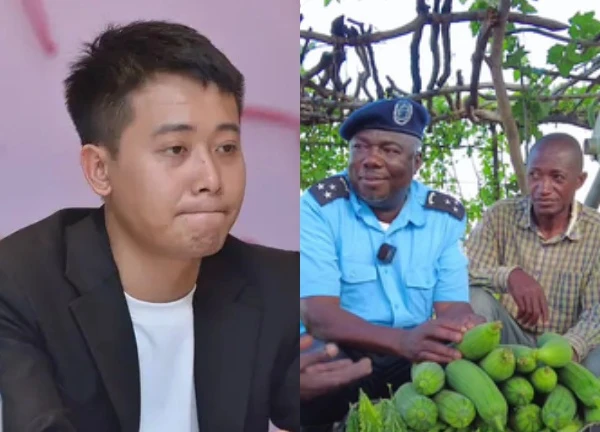
2 | 0 Discuss | Share
East Paulo cassava leaf silkworm Africa team carries silkworm eggs from Vietnam, hoping to breed them and raise them for food. Yet, when the harvest was about to begin, a series of devastating events suddenly occurred.
Considered a "dreamer" and "adventurer" in the African team, Dong Paulo continuously experiments and searches for plants and animals from Vietnam to bring to Angola for cultivation. In his opinion, the testing process will bring knowledge and experience about crops and soil, increasing valuable knowledge.
A few months ago, Dong Paulo experimented with raising silkworms from Vietnamese cassava leaves. The idea came when his farm successfully grew friable cassava, the roots were for people to eat, the leaves were... a pity to throw away.
Having experience making silkworms to eat mulberries back in his hometown of Thai Binh, Dong Paulo, he is quite confident. He hopes to be able to raise silkworms from cassava leaves for food. The farm owner even hopes that the silkworms can lay eggs and breed naturally for long-term farming.
For Vietnamese brothers working on the farm, eating silkworms brought from Vietnam not only satisfies their cravings, but also makes them teary-eyed.
Dong Paulo was very excited, thinking he would be able to harvest all the dozens of silkworms he was raising. Some of them had cocoons, making him even more confident that he could actively breed them.
There was one variable that Dong Paulo did not foresee: The head was swept but the tail did not reach. 2 days after he picked out the cooked cassava leaf silkworms to treat everyone, the remaining silkworms suddenly fell ill.
At the exact time when they are almost ripe, about to be harvested, the silkworms on the farm gradually turn black, languishing as if sick and dying. They themselves become flabby, broken, and then spread to healthy silkworms.
Dong Paulo and the people in charge of taking care of the silkworms were shocked. They said they covered the silkworms very carefully, and the cassava leaves they picked for the silkworms to eat were also clean and dry.
Everything happened too fast. 1-2 days before that, there were still cocoons, people were still discussing how to get eggs for breeding. Thinking they would get a lot of silkworms, they also built another trellis to place the silkworms.
The reason for the mass death of silkworms is speculated to be due to the harsh climate. This area is a mountainous area, it is hot in the morning but cold in the evening, the temperature drops to as low as 6-7 degrees. Maybe when it's ripe, silkworms are more sensitive so they get sick more easily.
The fact that the silkworms were given too much attention was also mentioned. Dong Paulo shared that although he asked certain people to take care of the silkworms, it seemed that many strangers in the village were curious to see more about "Vietnamese worms" and entered the farming area without restraint.
Previously, last April, Viet Phi farm of Linh Phillip - a member of the African team with Quang Linh Vlog - won big in the first wet rice crop of the season. Through many hardships, the experiment of planting 10 wet rice fields during Angola's rainy season was a great success. Linh Phillip and his farm brothers harvested 1.5 tons of rice.
A part of the rice seeds was divided among the team members for experimental planting and replication of the model and area of Vietnamese wet rice cultivation. Dong Paulo's farm is also a breeding address, hoping to be as successful as his friend.
However, faced with the harsh weather in Angola, aggressive and experimental people like Dong Paulo also faltered.
Dong Paulo further shared that the villagers of farm number 2 are coming to the farm to help reclaim, weed, and prepare the land. He also plans to borrow Quang Linh Vlog's tractor to prepare the land and prepare to plant vegetables.
Many followers shared the difficulties of East Paulo, and advised him to focus on building an irrigation system, digging ditches, connecting streams to large rivers and having water reservoirs rather than hastily sowing. growing rice in the off-season.
However, it must be added that the difficult situation does not occur on all Vietnamese farms in Angola. On the Viet Phi farm side, Linh Phillip has successfully planted rice seeds, ready for rice planting right in the dry season.
With experience from last season, Linh Phillip appeared quite confident. He and his workers also actively worked on the land, plowed it deeply, and took advantage of the young mud and irrigation system from the previous crop to grow rice this season.
Quang Linh Vlog just returned to Angola and sought out a powerful figure to "ask for help"? 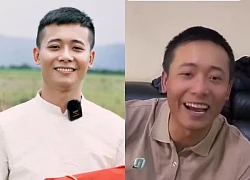 Keng06:58:07 22/03/2025In recent days, Quang Linh Vlogs, Hang Du Muc and Miss Thuy Tien have become the focus of public opinion for over-advertising the Kera vegetable candy product and have been punished by authorities.
Keng06:58:07 22/03/2025In recent days, Quang Linh Vlogs, Hang Du Muc and Miss Thuy Tien have become the focus of public opinion for over-advertising the Kera vegetable candy product and have been punished by authorities.

2 | 0 Discuss | Share

2 | 1 Discuss | Share

2 | 1 Discuss | Share

2 | 1 Discuss | Share

4 | 1 Discuss | Share
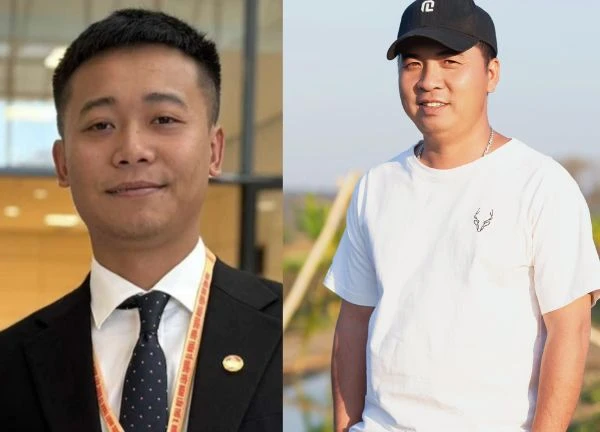
4 | 1 Discuss | Share
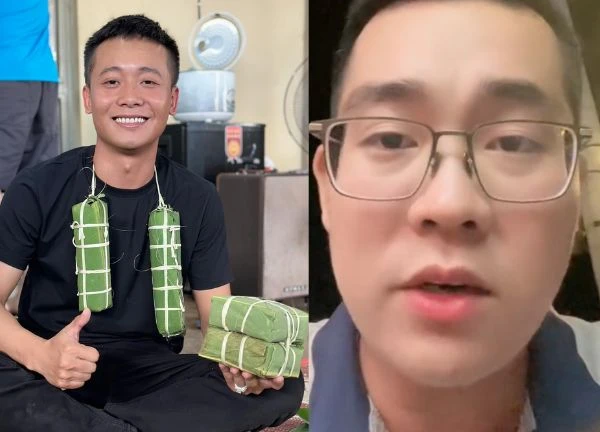
4 | 1 Discuss | Share
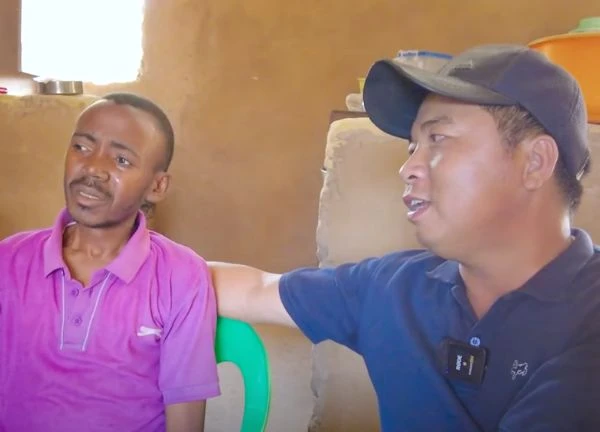
2 | 1 Discuss | Share
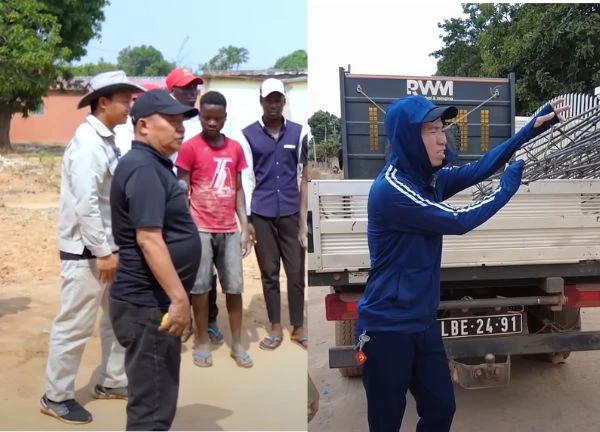
4 | 1 Discuss | Share
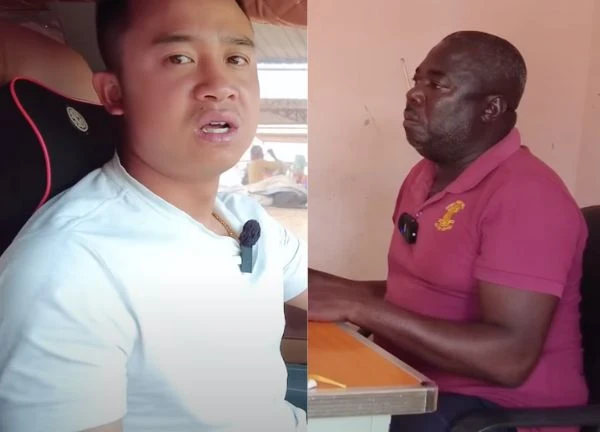
2 | 1 Discuss | Share
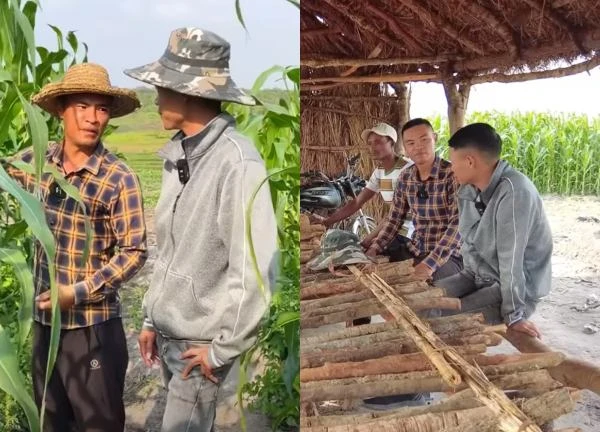
3 | 1 Discuss | Share
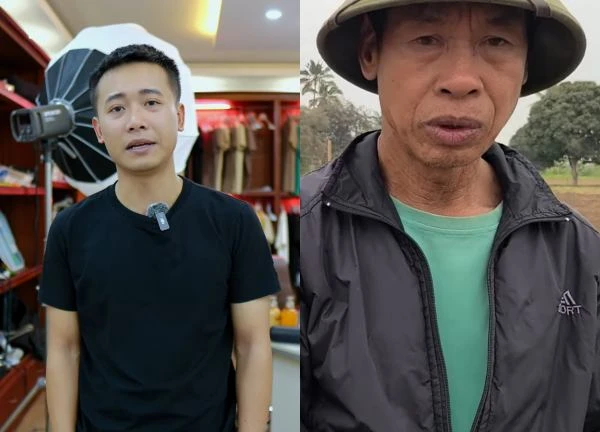
1 | 1 Discuss | Share




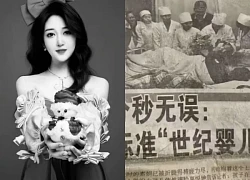



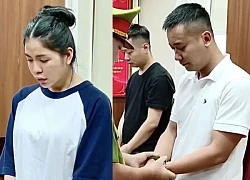
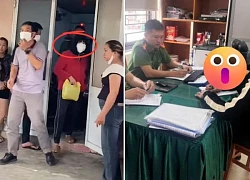
4 | 1 Discuss | Report